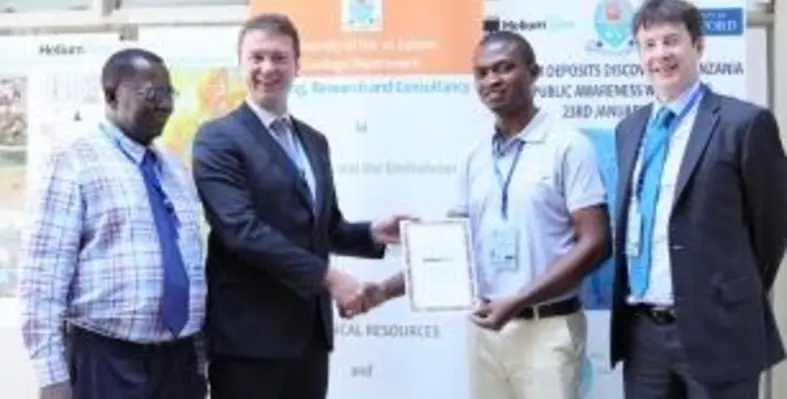Helium One has organised a one-day workshop at the University of Dar es Salaam, aiming to build local capacity and awareness on the origin, exploration and development of helium in Tanzania
The workshop was organised in partnership with the Geology Department of the University of Dar es Salaam (UDSM) and Oxford University.
The main objective was to bring together experts and scientists and important stakeholders from local, national and international communities to share their experiences and disseminate research findings on helium to enhance industrialisation in Tanzania. The workshop also featured high level noble gas scientists from Oxford University, collaborating with UDSM’s geology department, decision makers, development partners, policy developers and practitioners from government, researchers, private sectors and the local and international media.
During the workshop, Helium One awarded two UDSM students a funded MSc programme, which includes a placement at Oxford University, a sponsorship that aims to impart technical skills and scientific expertise to Tanzanians as well as fostering the existing productive partnership between Helium One and UDSM.
Helium One has discovered an estimated 98.9 bcf of helium, representing a major helium discovery in the global context of rapidly diminishing supply and growing demand for the resource. “We believe our Rukwa basin helium project holds the potential to become a flagship example of the government of Tanzania’s industrialisation agenda, set out in the 2016/17-2020/21 National Development Plan,” according to Thomas Abraham-James, CEO of Helium One.
“We believe that UDSM and Helium One have a lot to offer through the requisite partnership in terms of exchange of skills and professional expertise that will lead to leveraging locally-available skilled man-power from UDSM and other local institutions of higher learning,” said John Machiwa, vice-chancellor for research at UDSM.














